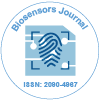Our Group organises 3000+ Global Conferenceseries Events every year across USA, Europe & Asia with support from 1000 more scientific Societies and Publishes 700+ Open Access Journals which contains over 50000 eminent personalities, reputed scientists as editorial board members.
Open Access Journals gaining more Readers and Citations
700 Journals and 15,000,000 Readers Each Journal is getting 25,000+ Readers
Indexed In
- Index Copernicus
- Google Scholar
- Genamics JournalSeek
- RefSeek
- Hamdard University
- EBSCO A-Z
- OCLC- WorldCat
Useful Links
Recommended Journals
Related Subjects
Share This Page
Experimental study of combined electrolytes for electrochemical deburring process
4th International Conference on Electrochemistry
Meet Oza, Alay Patel, Harsh Thakkar, Satisha Prabhu, Abhishek Kumar and Vishvesh Badheka
Pandit Deendayal Petroleum University, India
ScientificTracks Abstracts: Biosens J
Abstract
Statement of the Problem: Electrochemical deburring (ECD) appears to be very promising in the field of precision manufacturing. High precision and machining rates of this micro-machining technique has led to a wide variety of industrial applications, especially in mass production cycles. The study in this paper focuses on the application of combination of different electrolytes and control over the variation of its composition during ECD operations. In this study, various combinations of sodium chloride and sodium nitrate solutions are used as electrolytes and the performance of ECD has been evaluated. Methodology & Theoretical Orientation: Testing solutions, with various percentage combinations were prepared in laboratory for various combinations of electrolytes, sodium chloride and sodium nitrate, with individual concentrations providing maximum machining rates. Conductivity was measured for each sample and recorded. Standard conductivity versus composition charts and equations were prepared corresponding to the measurements. Experimental trials were conducted on the available setup. The material removal rates and current densities were calculated and compared. Conclusion & Significance: The measured values of conductivity for these combinations show a growth with respective increment in sodium chloride proportions. The interpolation models obtained from the plots can be utilized in industrial ECD operations to control and manipulate concentration of electrolytes. The MRR and current densities also are proportionate to the percentage of sodium chloride in the solution. Hence, it can be concluded that the effect of sodium chloride in the combination is more dominant. At the same time more stray cuts are observed with higher NaCl values. Recent Publications: 1. Uwe Heisel and Michael Schaal (2008) Burr formation in intersecting holes. Production Engineering 2(1):55-62. 2. K P Rajurkar, D Zhu, J A McGeough, J Kozak and A De Silva (1999) New developments in electro-chemical machining. CIRP Annals 48(2):567-579. 3. Washburn E W (1918) The equivalent conductance of electrolytes in dilute aqueous solution. IV. J. Am. Chem. Soc. 40(1):150-158. 4. S K Sorkhel and B Bhattacharyya (1994) Parametric control for optimal quality of the workpiece surface in ECM. Journal of Materials Processing Technology 40(3-4):271-286.Biography
Meet Oza is pursuing his graduation in Mechanical Engineering from Pandit Deendayal Petroleum University, Gandhinagar, Gujarat, India. He had participated in an industrial innovation competition organized by Larsen & Toubro (L&T) Technological Services, in which he secured a position in top 20 participants out of 7000, at the national level.
Email:meetoza524@gmail.com

 Spanish
Spanish  Chinese
Chinese  Russian
Russian  German
German  French
French  Japanese
Japanese  Portuguese
Portuguese  Hindi
Hindi